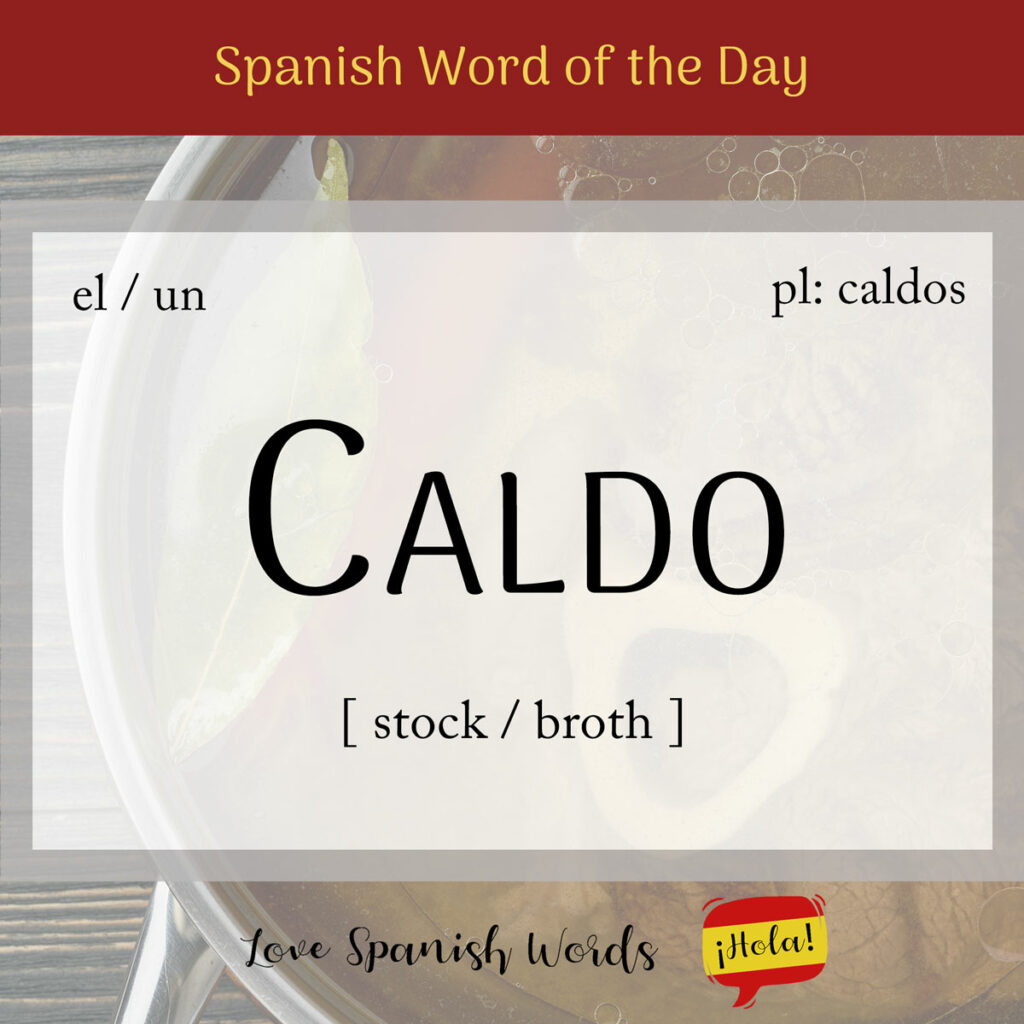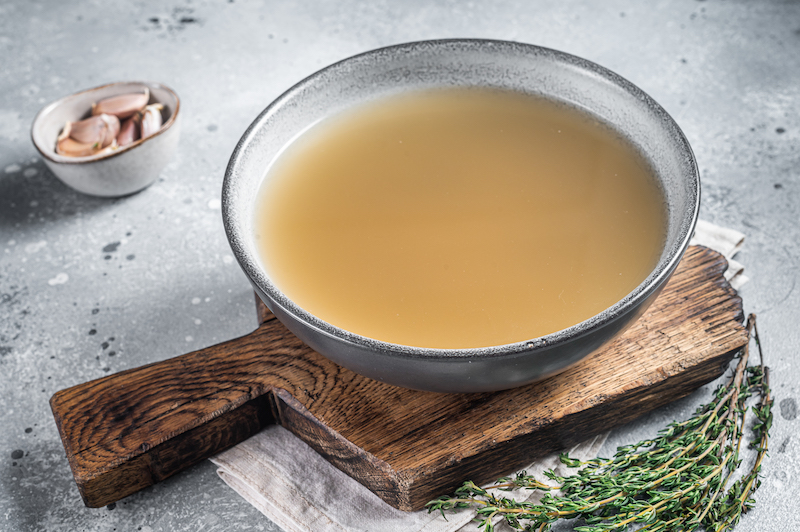An important ingredient in many Spanish dishes is the stock used for flavour and body. This stock or broth is called caldo. The word comes from the vulgar Latin calidus (or callus) meaning hot.
Latin American Pronunciation
European Pronunciation

As a masculine noun caldo takes the following definite and indefinite articles:
- el caldo = the stock/broth
- los caldos = the stocks/broths
- un caldo = a stock/broth
- unos caldos = some stocks/broths
Lo mejor para un resfriado es un plato de caldo de pollo.
The best thing for a cold is a bowl of chicken broth.
In Spanish supermarkets you can buy caldo de pollo (chicken broth) by the litre and you can also find stock cubes (cubitos de caldo). I personally think it’s worth spending a little extra on the liquid broths!
Or you can always make it at home – it’s very simple. You just need some chicken (pollo), including the bones. Either a whole chicken or some chicken thighs will do (leftovers from a roast chicken is what I use). Then you need some carrots (zanahorias), onion (cebolla), potatoes (patatas), celery (apio), leeks (puerros), parsley (perejil), bay leaf (laurel), peppercorns (pimienta negra), and salt (sal). Bring to a boil and simmer for 1.5 hours. Strain and enjoy as a soup or use as a stock.

As well as caldo de pollo (chicken broth), you can find stock or broth made with many different meats or just vegetables:
- caldo de pollo/gallina = chicken stock/broth
- caldo de carne = meat stock/broth
- caldo de pescado = fish stock/broth
- caldo de verdures = vegetable stock/broth
There are some examples of words derived from caldo. For example, caldoso/a is an adjective meaning watery in a culinary context, but it is also used as a noun in the place of caldo. For example arroz caldoso is a popular Spanish dish which literally means soupy rice, a caldo based stew with rice (arroz) added.
Caldito means soup in many parts of Latin America and caldero is a cauldron or large one handled cooking pot used over a fire.

Did you know that…?
In Mexico and other parts of Latin America, caldo is the name used for sugar cane juice.
Another culinary application of the word caldo is to describe fruit or vegetable juice, particularly wine, extracted from fruits and vegetables to be incorporated into food or beverages.
Los caldos de la Rioja están considerados como algunos de los mejores del mundo.
The wines of the Rioja region are considered some of the best in the world.
In biology caldo de cultivo is the figurative term for a culture medium or a breeding ground for bacteria. The term can also be used colloquially for any kind of figurative breeding ground.
Idiomatic expressions featuring ‘caldo’:
Hacer el caldo gordo a alguien
Literal translation: to make the broth fat for somebody
English meaning: to make things easy for somebody
Gallina vieja hace buen caldo
Literal translation: old chicken makes good broth
English meaning: many a good tune played on an old fiddle
Al que no le gusta el caldo, dos tazas
Literal translation: to whomever doesn’t like the broth, two cups
English meaning: if you don’t like something you’ll end up with more of it; life is unfair.
And finally, we have the very informal saying cambiar el caldo a las aceitunas which literally means to change the broth to olives or figuratively, to take a leak!

